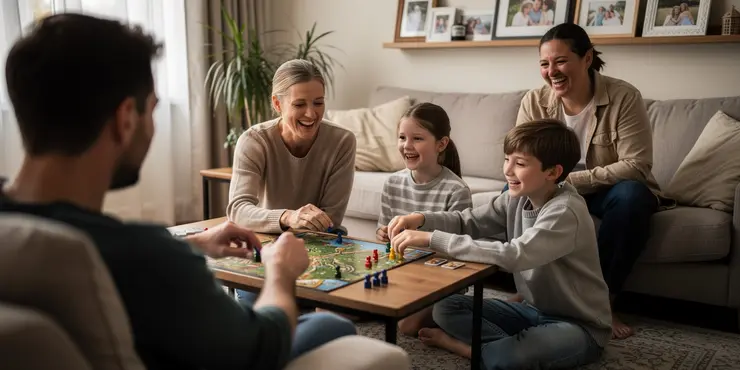
Find Help
More Items From Ergsy search
-
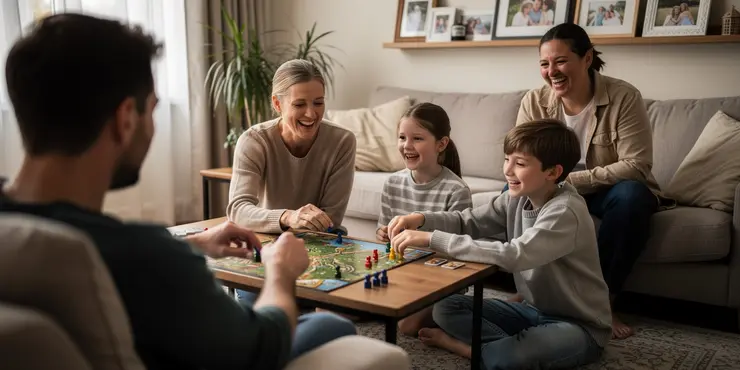
The Benefits of Family Activities
Relevance: 100%
-
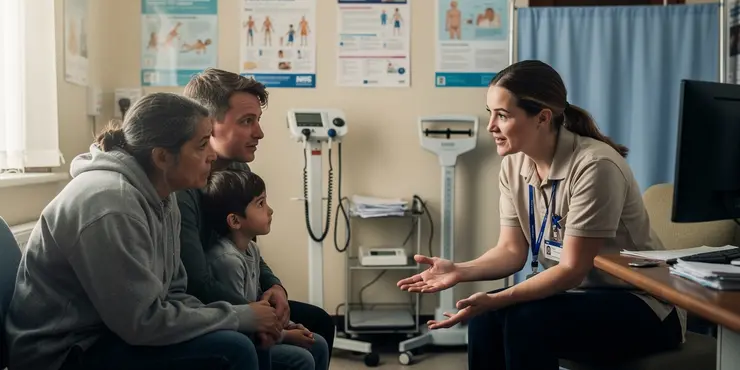
New Government Benefits for Low-Income Families
Relevance: 55%
-
Are activities provided for residents in care homes?
Relevance: 43%
-

Healthy Family Lifestyle Tips Post-Pandemic
Relevance: 39%
-
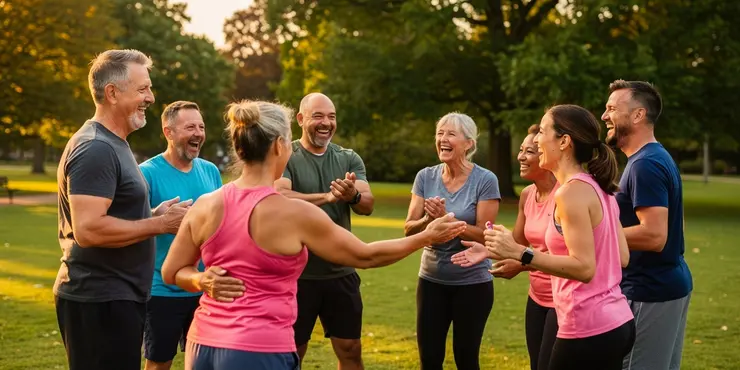
How important is physical activity in preventing obesity?
Relevance: 38%
-
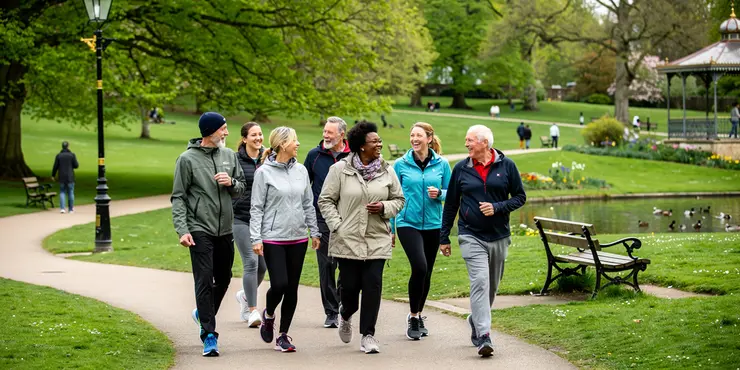
Staying Active: National Health Campaigns Promoting Physical Well-being
Relevance: 38%
-

What is active surveillance in prostate cancer treatment?
Relevance: 37%
-
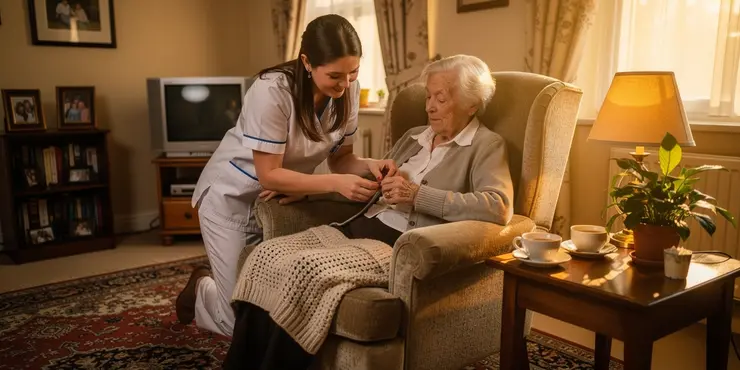
Who benefits from live-in care?
Relevance: 36%
-
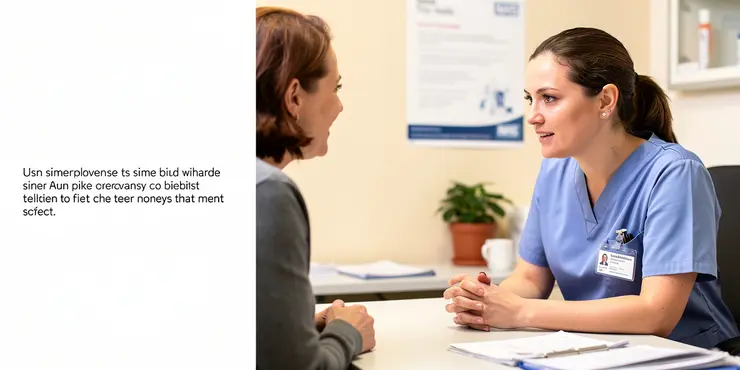
When are mosquitoes most active in the UK?
Relevance: 36%
-

Can SEND children access extracurricular activities?
Relevance: 36%
-

What is the active ingredient in Wegovy?
Relevance: 36%
-
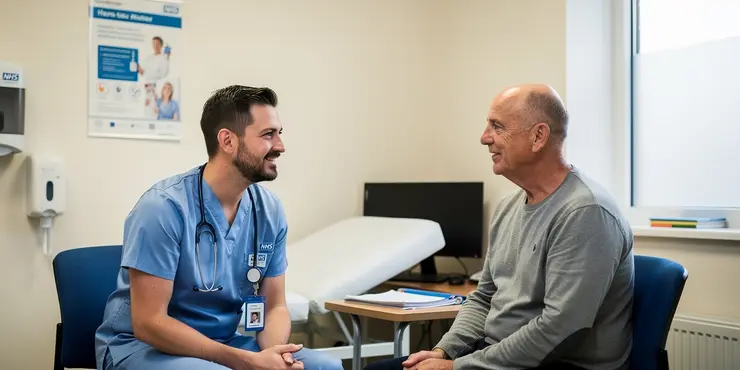
What is the active ingredient in Mounjaro?
Relevance: 36%
-
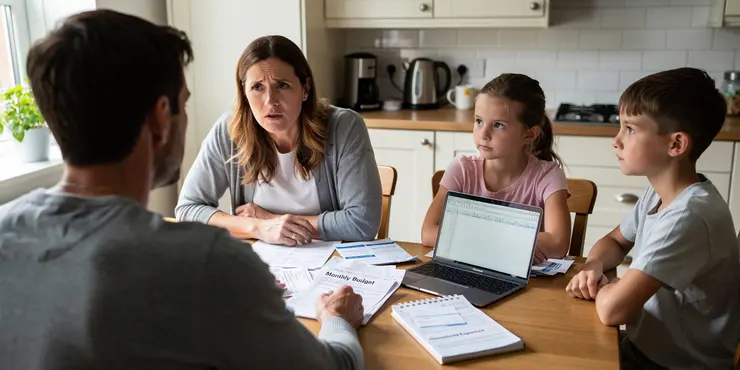
Understanding the Impact of Rising Living Costs on Family Welfare
Relevance: 35%
-
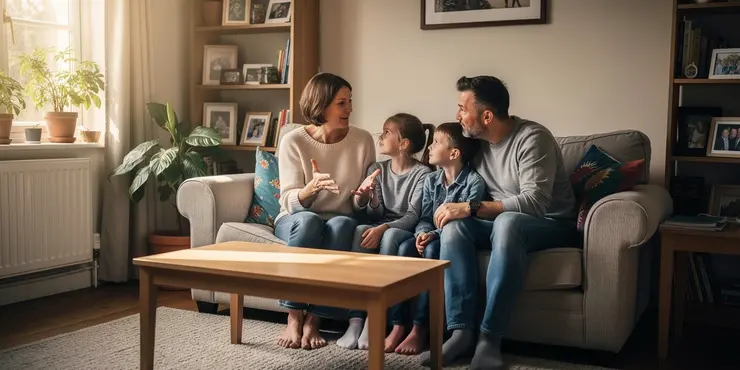
Mental Health Resources for Families
Relevance: 35%
-
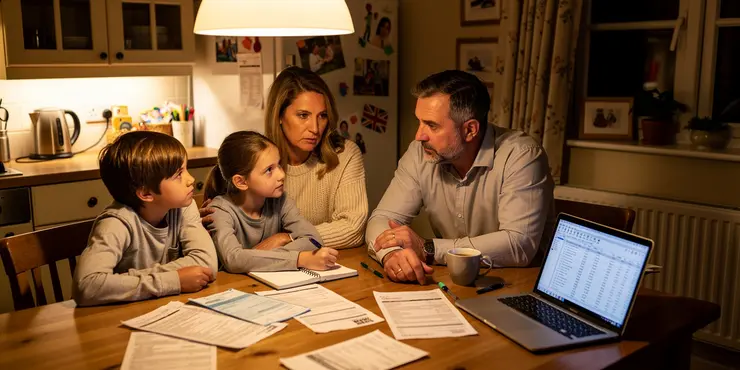
Rising Cost of Living: How Families Can Cope
Relevance: 34%
-
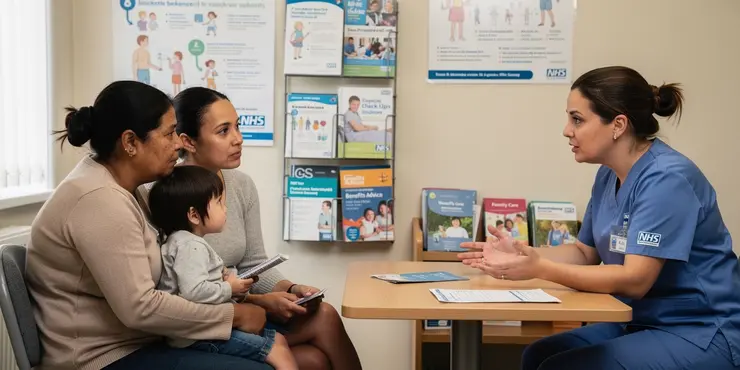
Government Announces New Support Scheme for Low-Income Families
Relevance: 34%
-

How important is physical activity for older adults picking new hobbies?
Relevance: 34%
-
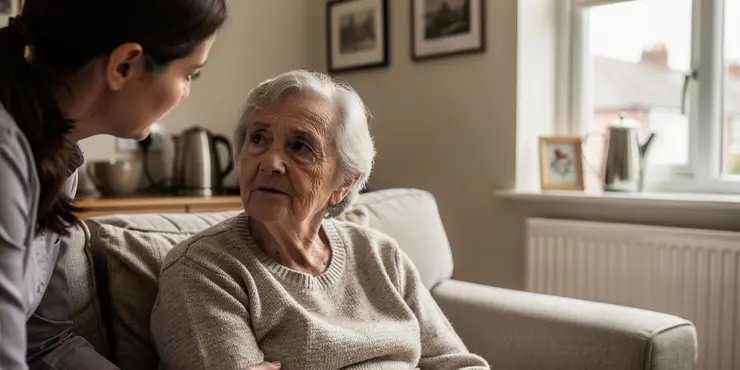
How can families support a loved one with Alzheimer's?
Relevance: 34%
-
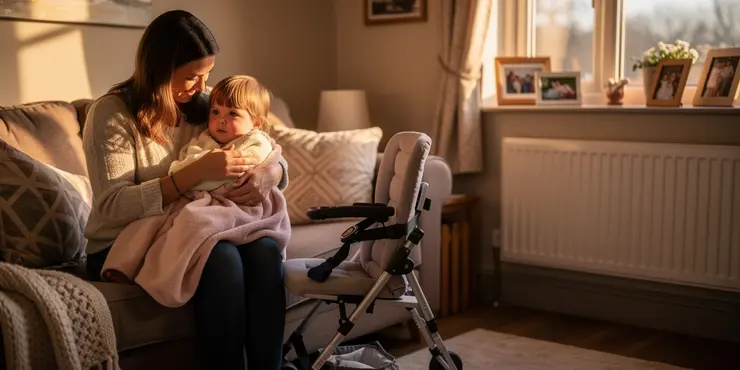
What support is available for families of individuals with PIMD?
Relevance: 34%
-

NHS Pensions | How to Claim? | Ill Health, Active & Deferred Members
Relevance: 34%
-

What are the benefits of relationship counselling?
Relevance: 33%
-

Do I need a different SPF for water-related activities?
Relevance: 33%
-
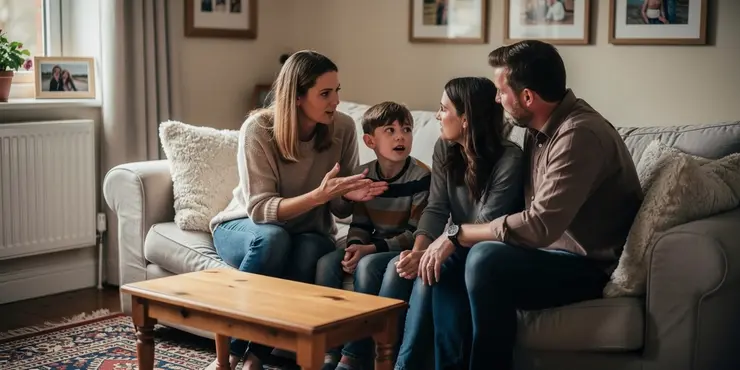
How can families support a member with autism?
Relevance: 33%
-
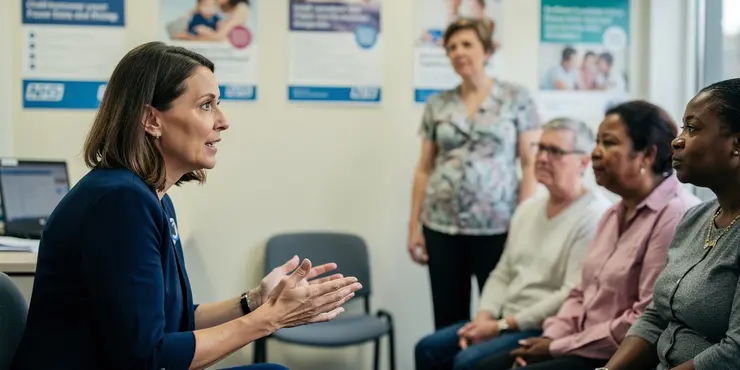
Campaigners Urge Review of Child Benefit Rates in Light of Inflation
Relevance: 33%
-

Government Support Schemes for Families Affected by Inflation
Relevance: 33%
-
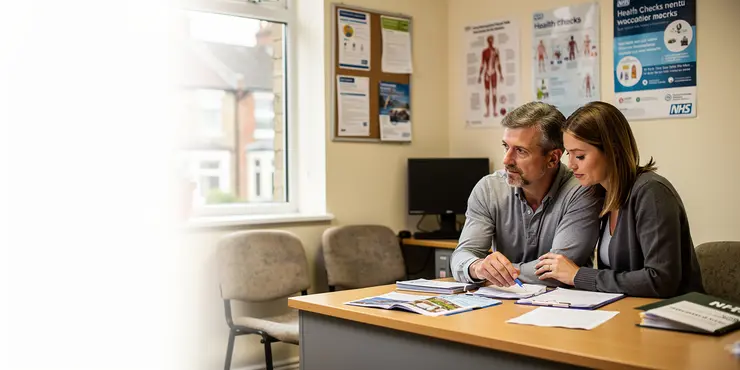
Can I include a family member during my travel for treatment?
Relevance: 33%
-
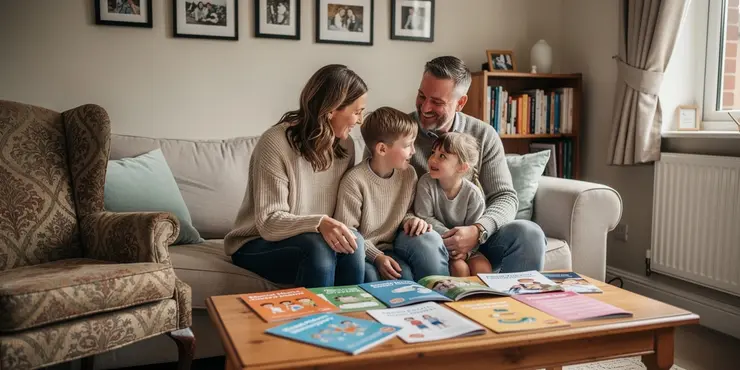
Mental Health Support for Families - Latest Resources and Guidance
Relevance: 33%
-
What support is available for families dealing with type 1 diabetes?
Relevance: 32%
-
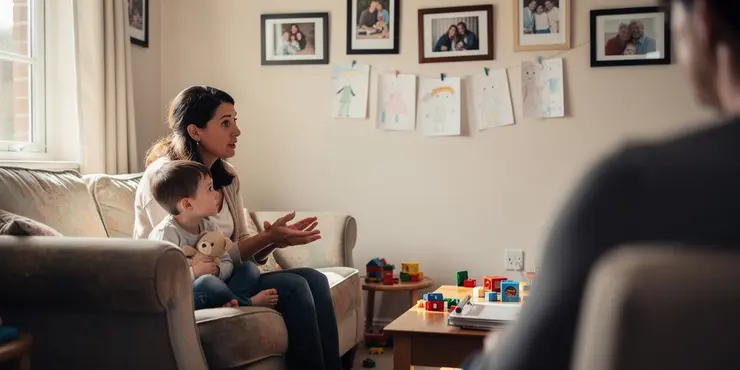
Who will be most affected by the proposed cuts to housing benefits?
Relevance: 32%
-
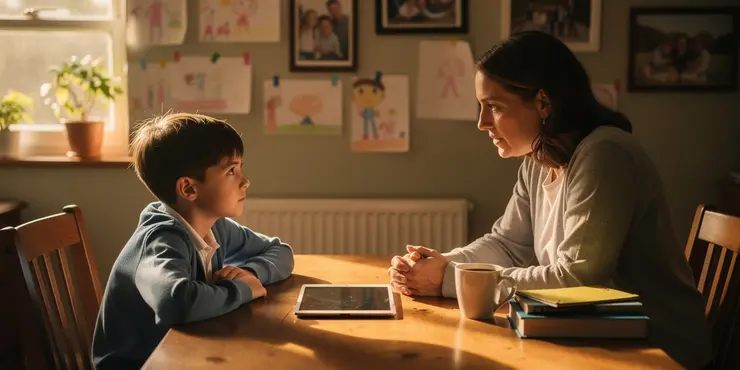
How important is family involvement in identifying grooming behaviors?
Relevance: 32%
-
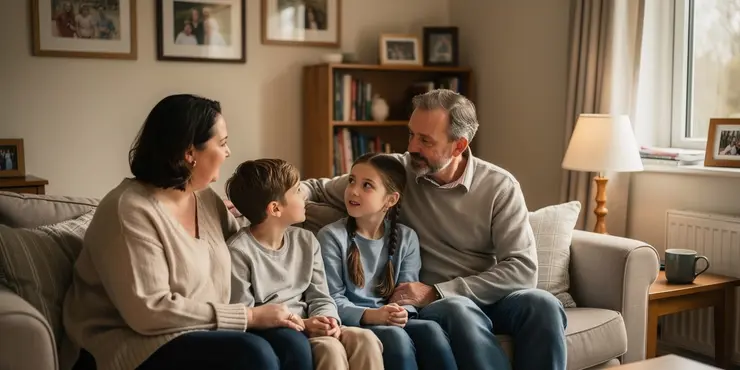
Managing Chronic Illness Within the Family
Relevance: 32%
-

Should people with a family history of colorectal cancer take aspirin?
Relevance: 32%
-
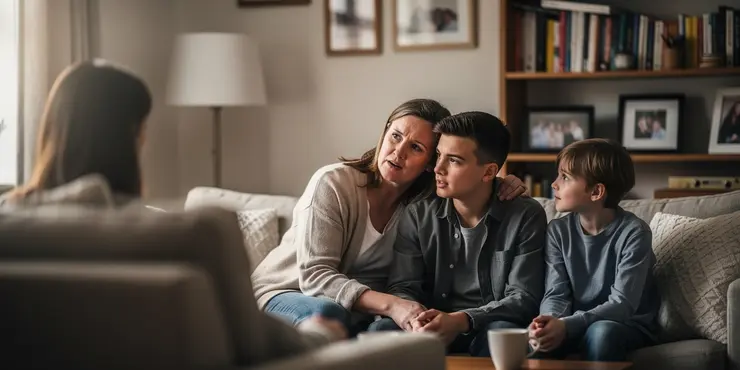
Advancements in Mental Health Resources for Families
Relevance: 32%
-

What is the relationship between rising rents and housing benefit cuts?
Relevance: 32%
-
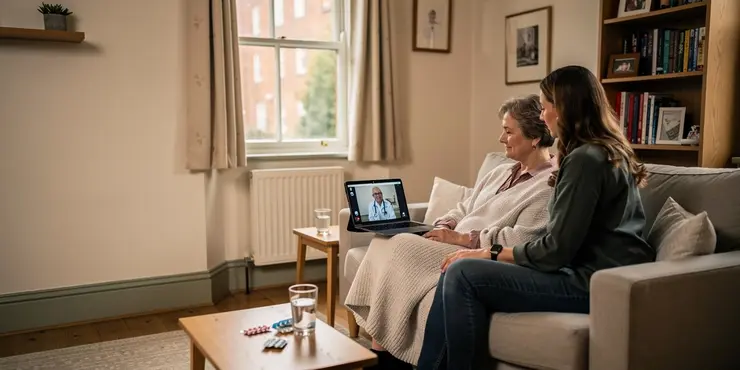
Can family members be involved in the care process on a virtual ward?
Relevance: 32%
-

Financial Support for Families Amid Rising Cost of Living
Relevance: 32%
-
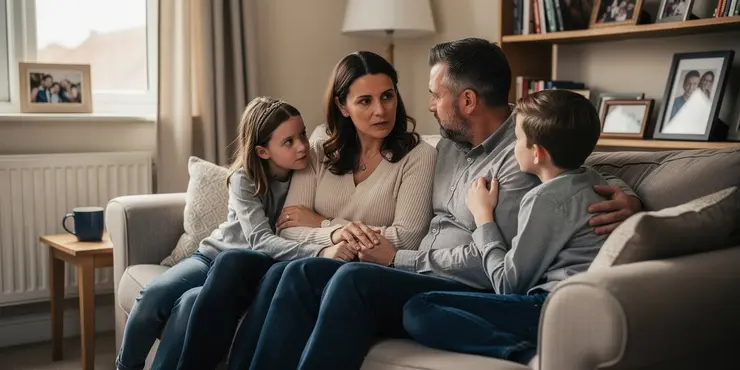
Mental Health Support Resources for Families
Relevance: 32%
-

What role do family and friends play in the recovery process?
Relevance: 31%
-
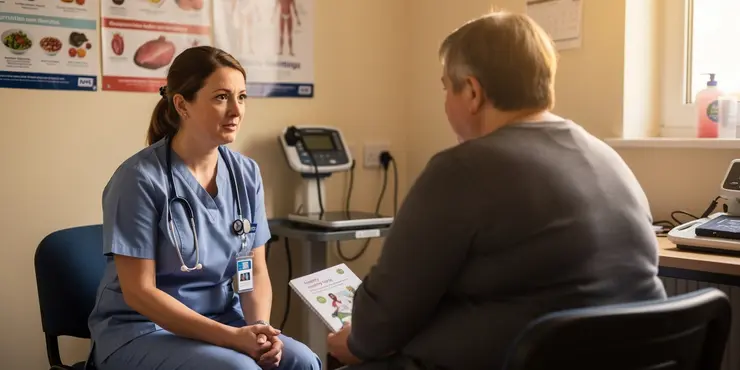
What is the active ingredient in Wegovy tablets?
Relevance: 31%
-

What happens to the pension benefits upon the death of a firefighter?
Relevance: 31%
The Benefits of Family Activities
Strengthening Family Bonds
One of the foremost benefits of family activities is the opportunity to strengthen family bonds. When families engage in activities together, whether it’s a weekend hike in the countryside or a board game night at home, they create lasting memories and foster a sense of unity. These shared experiences help build trust and understanding among family members, deepening the connection and improving familial relationships.
Promoting Physical Health
Participating in physical activities as a family can greatly contribute to the overall health and well-being of each member. Outdoor activities like cycling in the park, taking a stroll along the seaside, or playing a game of football in the garden encourage physical exercise, which is essential for maintaining a healthy lifestyle. Moreover, these activities can instill good exercise habits in children, promoting an active lifestyle from a young age.
Enhancing Communication Skills
Engaging in various activities provides a natural platform for family members to communicate more openly. Whether discussing strategies for a puzzle, sharing stories during a long car ride, or planning a family outing, these interactions can help improve verbal and non-verbal communication skills. Children especially benefit from these enhanced communication opportunities, as they learn how to express themselves clearly and listen to others in a supportive environment.
Building Life Skills
Family activities often present opportunities to learn and practice important life skills. Cooking a meal together can teach children about nutrition, budgeting, and teamwork. Participating in team sports can help develop cooperation, leadership, and resilience. These skills are not only beneficial in day-to-day life but also contribute to the personal growth of each family member, preparing them for future challenges.
Creating a Sense of Belonging
Family activities can foster a sense of belonging and security, especially for younger members. Knowing that they have a supportive and loving family to rely on provides emotional stability and boosts self-esteem. This sense of belonging is crucial for mental health and well-being, offering a safe space where individuals can be themselves and feel valued.
Encouraging Academic Success
Regular family activities can also positively influence academic performance. Engaging in educational activities such as visiting museums, historical sites, or participating in science experiments at home stimulates curiosity and a love for learning. Moreover, the support and encouragement from family members can reinforce the importance of education and help children develop a positive attitude towards their studies.
In conclusion, family activities are invaluable in creating a nurturing environment that promotes physical health, communication, life skills, emotional well-being, and academic success. For families in the United Kingdom, the diversity of available activities provides countless opportunities to spend quality time together, strengthening ties and enriching each member's life.
The Benefits of Family Activities
Getting Closer as a Family
Doing things together as a family makes you feel closer. Whether it's going for a walk or playing a board game at home, these activities help you make happy memories. They also help families feel like a team. This helps everyone trust each other more and get along better.
Staying Healthy
Being active is good for you. Families can stay healthy by doing activities together. You can ride bikes in the park, walk by the sea, or play football in the garden. These activities make you move your body, which is important for staying fit. Doing these things helps kids learn to enjoy exercise.
Talking and Listening
Family activities help you talk and listen to each other. Whether you are solving a puzzle or planning a trip, these activities improve how you communicate. Kids learn how to talk and listen better, which helps them feel more confident.
Learning New Skills
You can learn important skills by doing activities together. Cooking a meal as a family can teach you about healthy eating and working as a team. Playing sports helps you learn to work with others and how to be a leader. These skills help you grow and get ready for new challenges.
Feeling You Belong
Family activities help you feel like you belong and are safe. This is very important for younger kids. Feeling supported and loved boosts confidence and helps mental health. It gives you a place where you feel accepted and happy.
Helping with School
Family activities can help you do better in school. Visiting museums or doing science experiments at home makes learning fun. The support of your family helps you see why learning is important and encourages you to try your best at school.
In conclusion, family activities are really important. They help keep you healthy, improve communication, teach you new skills, make you feel happy, and even help with school. There are lots of fun things you can do together in the UK, bringing families closer and making life better for everyone.
Frequently Asked Questions
What are the benefits of family activities?
Family activities strengthen family bonds, improve communication, and create lasting memories. They also promote physical and mental health.
How often should a family participate in activities together?
Ideally, families should aim to engage in a mix of small, daily activities and larger, weekly or monthly events to keep the connection strong.
Are there any cost-effective family activities in the UK?
Yes, there are plenty of budget-friendly options such as picnics in the park, visiting free museums, hiking, and enjoying local festivals.
Can family activities improve children's academic performance?
Yes, quality family time can boost children's academic achievements by providing them with a supportive environment and enriching their learning experiences.
What are some popular outdoor family activities in the UK?
Popular outdoor activities include visiting national parks, coastal walks, cycling trails, and exploring historical sites such as castles and heritage sites.
How do family activities benefit teenagers?
Family activities can help teenagers feel more supported and understood, improve their self-esteem, and reduce the likelihood of engaging in risky behaviours.
What are some indoor family activities for rainy days?
Indoor activities can include playing board games, cooking together, watching movies, or engaging in arts and crafts projects.
How do family activities enhance communication skills?
Participating in activities together encourages open dialogue, listening, and teamwork, which can greatly enhance communication skills within the family.
Are there any health benefits associated with family activities?
Yes, physical activities improve fitness and mental health, while shared laughter and enjoyment can reduce stress and promote emotional well-being.
What are some educational family activities?
Activities like visiting museums, historical sites, nature reserves, and engaging in science experiments at home can be both fun and educational.
How can busy families find time for activities?
Prioritising family time by scheduling regular activities and making the most of weekends can help busy families stay connected.
Can family activities help with behavioural problems in children?
Yes, consistent family activities can provide structure, positive reinforcement, and a supportive environment that can help manage and reduce behavioural issues.
What are some creative family activities for the holidays?
Creative holiday activities include decorating together, making homemade gifts, participating in local events, and hosting family game nights.
How do family activities foster teamwork?
Participating in group activities requires coordination, cooperation, and problem-solving, which can enhance teamwork skills and the ability to work together effectively.
What are the long-term benefits of regular family activities?
Long-term benefits include strengthened family bonds, improved emotional well-being, and a foundation of trust and support that persists throughout life.
Why are family activities good?
Doing fun things with your family has many good parts:
- You feel happy and close with your family.
- You make special memories together.
- Everyone learns to share and work as a team.
- You get to talk and listen to each other.
- Everyone can stay healthy and active.
Here are some things that can help:
- Play simple games together, like board games.
- Go for a walk or ride bikes as a family.
- Cook a meal together and eat it as a group.
- Have a family meeting where everyone can talk.
- Use pictures or videos to help understand tasks.
Doing things together as a family makes everyone closer, helps you talk to each other, and gives you happy memories to remember. It also helps you stay healthy and feel good.
How many times should a family do things together?
Families should try to do fun things together often. This helps everyone feel close and happy.
Here are some ideas:
- Talk and listen to each other.
- Play games together.
- Go to the park or for a walk.
Doing things together makes family time special!
Families should try to do small things together every day and plan fun bigger things every week or month. This helps them stay close and happy.
What fun things can families do in the UK that don't cost much?
Yes, there are lots of fun things to do that don't cost much money. You can have a picnic in the park, go to free museums, take a nice walk in nature, or enjoy local festivals.
Can family fun help kids do better in school?
Doing fun things with your family can help kids learn better. When families spend time together, like playing games or reading, kids can get smarter. Here are some simple ways to help:
- Play educational games together.
- Read stories with your child.
- Go on family trips to museums or parks.
- Talk to your child about what they learned in school.
When families do these things, kids may do better in school. Use simple words and a clear voice when talking. Encourage kids to ask questions if they don't understand.
Yes, spending good time with family can help kids do better in school. Family can support and help them learn new things.
What fun things can families do outside in the UK?
Here are some outdoor activities you can enjoy with your family:
- Go for a walk in a park or forest.
- Have a picnic with your family.
- Ride bikes together in a safe place.
- Visit a zoo to see animals.
- Play games like football or frisbee.
- Go to the beach and make sandcastles.
- Explore nature and look for birds and bugs.
Remember to stay safe and have fun!
There are lots of fun things to do outside. You can visit big parks called national parks. You can also walk by the sea on special paths. Riding bikes on trails is fun too. Some people like to explore old places like castles or places with lots of history.
How do family activities help teenagers?
Family activities are things you do together with your family. These can be games, trips, or even having dinner together. Doing family activities can help teenagers feel happy and loved. It also helps them learn new things and talk about their feelings. Family time is important!
Here are some ways family activities help:
- Feel Loved: Spending time with family makes teenagers feel cared for and safe.
- Learn New Things: Families can teach teenagers skills or hobbies during activities.
- Talk and Share: It is a chance to talk about the day and feelings.
- Have Fun Together: Having fun with family is a great way to feel happy.
Some tools to help with family activities:
- Make a family schedule to plan fun activities together.
- Use a calendar to remember family events.
- Ask everyone in the family to share ideas for things to do.
Doing things with your family can help teenagers feel good and understood. It can also make them feel better about themselves and stop them from doing dangerous things.
What fun things can a family do indoors on a rainy day?
Here are some fun ideas for you and your family:
- Play games: Board games and card games are lots of fun.
- Watch a movie: Choose a family movie and watch it together with snacks.
- Bake together: Make cookies or a cake. It's fun and tasty!
- Read a story: Read books aloud and enjoy the adventure.
- Do puzzles: Work on a jigsaw puzzle together.
- Make crafts: Use paper, glue, and colors to create art.
Some helpful tools you can use:
- Audiobooks for fun listening.
- Simple cooking guides for baking.
- Large-piece puzzles for easy play.
There are fun things to do inside. You can play board games, cook food together, watch movies, or do arts and crafts.
How do family activities help us talk better?
Doing things with family can help us talk better. Here are some ways:
- Talking Together: When families chat, we learn new words and ideas.
- Playing Games: Games help us take turns and listen to others.
- Sharing Stories: Telling and listening to stories helps us share our thoughts.
- Doing Crafts: Making things together can help us ask questions and give answers.
- Cooking Together: Cooking teaches us how to follow steps and talk about what we need.
Tools to Help:
- Use pictures to show what you mean.
- Practice talking with family often.
- Ask someone to help if you need it.
Doing things together as a family helps everyone talk and listen better. It teaches us to work as a team and talk to each other well. You can use pictures to explain ideas and play games that need talking to practice these skills.
Are family activities good for your health?
Doing things with your family can be good for your health. These activities can make you feel happy and healthy. Here are some ways family activities can help:
- They can make your body strong by moving around.
- Playing together can make you feel close and loved.
- Having fun together can make you feel less worried.
- Talking and laughing can help you get along with each other.
Here are some tips for having family fun:
- Go for a walk or play a game outside.
- Cook a meal together.
- Watch a movie and talk about it.
- Do a puzzle or play a board game.
These family times can make everyone feel better and happier.
Yes, doing physical activities helps make our bodies strong and healthy. It also makes us feel happy. Laughing and having fun with others can help us feel less worried and more relaxed.
What are fun learning activities for families?
Here are some easy and fun activities for families to learn together:
- Reading Books: Pick a book you all like and take turns reading out loud.
- Cooking Together: Follow a simple recipe and cook a meal as a family.
- Nature Walks: Go for a walk outside and talk about the plants and animals you see.
- Puzzles: Work on a jigsaw puzzle together. It helps with problem-solving skills.
- Board Games: Play games that need counting or word skills, like Scrabble or Monopoly.
These activities help everyone learn new things and have fun!
Doing fun things can help us learn. You can go to museums to see amazing things. You can visit old places to learn about history. Seeing nature parks is great for meeting plants and animals. At home, you can do science experiments. These are all ways to have fun and learn at the same time.
If reading is hard, you can use pictures to help. You can ask an adult to read with you. Using audiobooks is a great idea too. They can read the words out loud for you.
How can busy families have time for fun things?
Families can be really busy. It's important to find time to have fun together. Here are some easy tips:
- Make a plan: Write down things you want to do together.
- Set a time: Choose a day and time for family fun, like every Saturday morning.
- Share jobs: Everyone can help to save time, like cleaning up together.
- Turn off screens: Take a break from TV and phones to spend time together.
Families can use a big calendar to see their plans. It's also nice to have special "family time" every week. Play a game, go for a walk, or cook a meal together. Remember, the most important thing is to have fun and be together!
Spending time with your family is important. You can plan fun things to do together. This helps you stay close. Try to do things together on the weekends when you have more time.
Can doing things together as a family help children behave better?
Yes, doing family activities together can help everyone feel safe and happy. It can make it easier to behave well.
Fun Things to Do with Your Family on Holidays
Fun things to do on holiday can be:
- Decorating together.
- Making gifts at home.
- Going to events nearby.
- Having family game nights.
You can use picture boards to help choose activities and use a calendar to plan fun times.
How can doing things with family help us work together better?
When you join group activities, you need to work together and solve problems with others. This helps you learn to be part of a team and work well with other people.
Why is doing fun things with your family good in the long run?
When you do fun things together, your family can feel closer and happier.
Here are some good things that happen:
- You learn how to get along and talk to each other better.
- Everyone feels like they belong and are loved.
- It can help you feel less stressed and more relaxed.
- You make happy memories that last a long time.
You can use picture schedules or timers to help plan family fun times.
Drawing a chart or using apps can be helpful to pick ideas.
Being close to your family helps you feel good. This closeness makes your family strong and full of trust. These good feelings stay with you for a long time.
Here are some tips that can help:
- Talk to your family every day.
- Spend fun time together, like playing games or having meals.
- Listen to each other and be kind.
If reading is hard, you can use tools like audiobooks or ask someone to read to you.
Useful Links
This website offers general information and is not a substitute for professional advice.
Always seek guidance from qualified professionals.
If you have any medical concerns or need urgent help, contact a healthcare professional or emergency services immediately.
Some of this content was generated with AI assistance. We’ve done our best to keep it accurate, helpful, and human-friendly.
- Ergsy carfully checks the information in the videos we provide here.
- Videos shown by Youtube after a video has completed, have NOT been reviewed by ERGSY.
- To view, click the arrow in centre of video.
- Most of the videos you find here will have subtitles and/or closed captions available.
- You may need to turn these on, and choose your preferred language.
- Go to the video you'd like to watch.
- If closed captions (CC) are available, settings will be visible on the bottom right of the video player.
- To turn on Captions, click settings .
- To turn off Captions, click settings again.
More Items From Ergsy search
-

The Benefits of Family Activities
Relevance: 100%
-

New Government Benefits for Low-Income Families
Relevance: 55%
-
Are activities provided for residents in care homes?
Relevance: 43%
-

Healthy Family Lifestyle Tips Post-Pandemic
Relevance: 39%
-

How important is physical activity in preventing obesity?
Relevance: 38%
-

Staying Active: National Health Campaigns Promoting Physical Well-being
Relevance: 38%
-

What is active surveillance in prostate cancer treatment?
Relevance: 37%
-

Who benefits from live-in care?
Relevance: 36%
-

When are mosquitoes most active in the UK?
Relevance: 36%
-

Can SEND children access extracurricular activities?
Relevance: 36%
-

What is the active ingredient in Wegovy?
Relevance: 36%
-

What is the active ingredient in Mounjaro?
Relevance: 36%
-

Understanding the Impact of Rising Living Costs on Family Welfare
Relevance: 35%
-

Mental Health Resources for Families
Relevance: 35%
-

Rising Cost of Living: How Families Can Cope
Relevance: 34%
-

Government Announces New Support Scheme for Low-Income Families
Relevance: 34%
-

How important is physical activity for older adults picking new hobbies?
Relevance: 34%
-

How can families support a loved one with Alzheimer's?
Relevance: 34%
-

What support is available for families of individuals with PIMD?
Relevance: 34%
-

NHS Pensions | How to Claim? | Ill Health, Active & Deferred Members
Relevance: 34%
-

What are the benefits of relationship counselling?
Relevance: 33%
-

Do I need a different SPF for water-related activities?
Relevance: 33%
-

How can families support a member with autism?
Relevance: 33%
-

Campaigners Urge Review of Child Benefit Rates in Light of Inflation
Relevance: 33%
-

Government Support Schemes for Families Affected by Inflation
Relevance: 33%
-

Can I include a family member during my travel for treatment?
Relevance: 33%
-

Mental Health Support for Families - Latest Resources and Guidance
Relevance: 33%
-
What support is available for families dealing with type 1 diabetes?
Relevance: 32%
-

Who will be most affected by the proposed cuts to housing benefits?
Relevance: 32%
-

How important is family involvement in identifying grooming behaviors?
Relevance: 32%
-

Managing Chronic Illness Within the Family
Relevance: 32%
-

Should people with a family history of colorectal cancer take aspirin?
Relevance: 32%
-

Advancements in Mental Health Resources for Families
Relevance: 32%
-

What is the relationship between rising rents and housing benefit cuts?
Relevance: 32%
-

Can family members be involved in the care process on a virtual ward?
Relevance: 32%
-

Financial Support for Families Amid Rising Cost of Living
Relevance: 32%
-

Mental Health Support Resources for Families
Relevance: 32%
-

What role do family and friends play in the recovery process?
Relevance: 31%
-

What is the active ingredient in Wegovy tablets?
Relevance: 31%
-

What happens to the pension benefits upon the death of a firefighter?
Relevance: 31%


